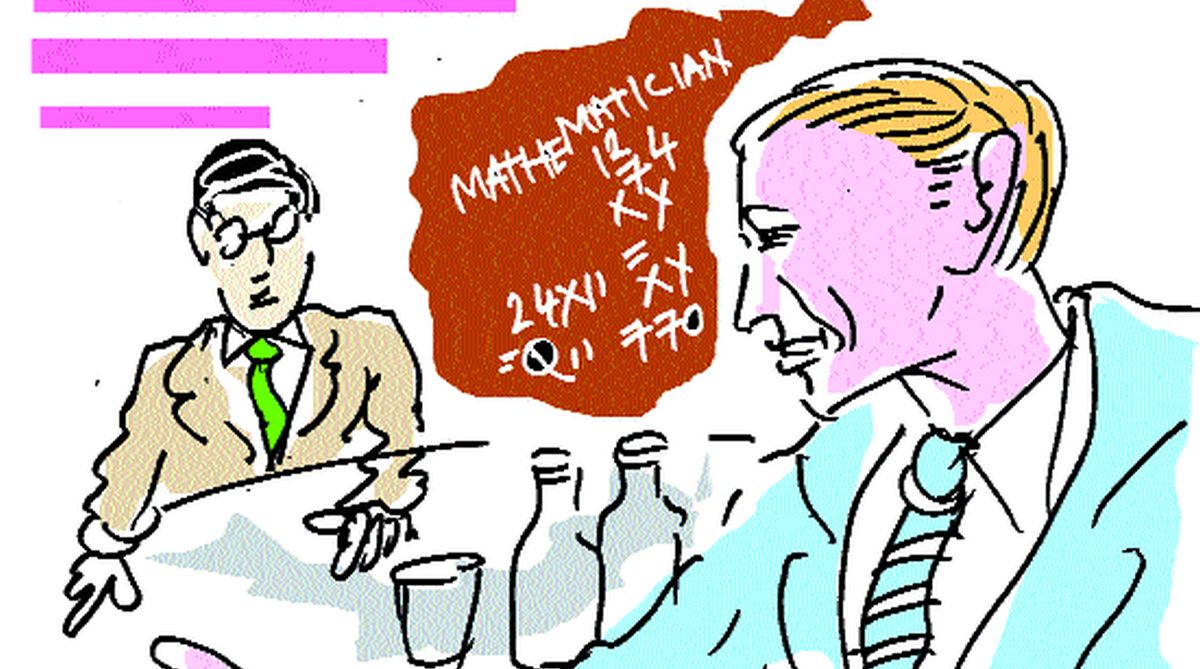Are reunifications the key to world peace?
One geopolitical phenomenon that has kept repeating during recent history is the separation of a country into multiple smaller countries, mainly for political or religious reasons.

His father, Victor Avilov, was a celebrated mathematician, whose books were an obligatory text in the entire USSR. He could have been one too. But it didn’t turn out that way.
Leonid loved mathematics, he told me, its precision, simplicity and unbelievable chic. But he didn’t care much for the perennial experience of scarcity. He didn’t have the clothes he needed, even in the bone-chilling winter of Moscow. Nor did his mother, Olya, who even lacked ingredients she needed to cook for visiting relatives. His father Victor wore frayed jackets and stodgy glasses and worked with shamefully old texts and computers.
Graduating with distinction, Leonid joined the university faculty and made his father proud. Then, to the chagrin of his father and his mathematician colleagues, he left the university and joined government service. The petroleum ministry doubled his salary and offered both prestige and perks. The apartment he got on the elite Smolensky Prospekt in Arbat was four times the size of his father’s modest flat in rundown Ulitsa Kosygina.
Advertisement
He was embarrassed to invite his parents to his luxurious home, but his girlfriend, Nadia, who also taught in the university and had moved in with him, persuaded him to overcome his qualms. The parents were duly impressed by his new lodging. More important, Victor was reassured that his son was using his knowledge to develop complex algorithms in the country’s interest. Surely, he hadn’t lost touch with mathematics.
Then another door opened for Leonid. A UN agency team, which had been carrying out a study in the petroleum industry, was greatly impressed by his work. They invited Leonid to join their team for two major projects in Yerevan, Armenia, and Dushanbe, Tajikistan. When he started work on a third project in Skopje, Macedonia, he was offered, in consultation with his government, a senior position in the agency’s headquarters in Geneva, to apply his modeling skills to key labour issues in the world.
That is how we met in Tokyo, where we both came to work on the same project eight years later. Slim, rugged, almost athletic, he was a fast walker but slow talker, given to stating his view concisely and directly, then softening the impact with a short, lucid exegesis. When I knew him better, I facetiously told him that the first part came from his immersion in the Russian bureaucracy, and the latter from his admiration for his gifted father. He was no doubt a star analyst, but he supplemented that with a conceptual flair that placed him in a class by himself. His reports were characteristic: they were short on elegance, but long, brilliantly so, on analysis and depth. English forever remained an alien idiom to him, but his prose was defiantly luminous in precision.
We became friends when I realized that he was as earnest in his relationships as in his work. He meant what little he said. His warmth was genuine, his sincerity consistent. Gradually I learned his painful secrets. Though he lived in Geneva comfortably with his wife Nadia, his government did not allow him to have both his daughters with him overseas. If Gelya was with him, attending school, Galya had to be in Moscow with his parents, as a guarantee of his return. He was well paid by the UN agency, but he was privately required to remit a quarter of his dollar salary to his government, then lacking in foreign exchange. He still remained amazingly dedicated both to his work and to his country.
It took me time to realize that Leonid was truly a son of his father. Night after night he would spend hours in a casino playing Pachinko, a Japanese arcade game of chance, struggling mightily to devise the algorithm that would let him win consistently. He was less interested to win than to lasso his dream of a perfect system.
But he was also truly a son of Russia. After a long day in Tokyo, he would sit in a terraced izakaya, sip warmed saké and tell me of his family, his parents, Moscow and vodka. He was content to drink wine with me, but his heart always craved for good Russian vodka. Vodka, he insisted, must be drunk right: freeze the silver liquid for two hours and then drink it – straight, of course. Vermouth, verboten; ice, an abomination. That lesson, though not of mathematics, I still abide by.
The writer is a Washington-based international development advisor and had worked with the World Bank. He can be reached at mnandy@gmail.com
Advertisement